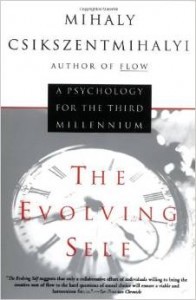Strengthlab on Apr 3rd 2015 StrengthLab Thoughts
If you live a sedentary lifestyle… by the age of 50 you will have lost approximately 25% of your physical capacity (that’s your independence we are talking about here). That’s exactly 1% of lost physical capacity per year from the age of 25 to 50 years of age. That’s pretty disturbing for independent minded people!
Now contrast that lost 25% physical capacity with only 3.9% lost physical capacity of those who remained vigorously active until the age of 50. Now that’s impressive!
To reiterate, sedentary individuals lose 25% of their abilities by the age of 50… while active individuals lose less than 4% of their abilities by the age of 50!
That’s plenty of reason to push on or get started!
Strengthlab on Apr 3rd 2015 StrengthLab Thoughts
Muscular strength, muscular endurance and cardiorespiratory endurance decline mostly because of a lack of exercise, not because of factors associated with biological aging. Comprehensive research clearly shows that physical disuse accelerates the aging process and physical atrophy can begin at any age due to inactivity.
Strengthlab on Apr 3rd 2015 StrengthLab Thoughts
At some point in our lives, the majority of us experience resignation… we simply stop actively trying to improve ourselves. The continual wave of challenges that we face as human beings can be quite daunting and the accumulation of life-long losses that we’ve suffered along the way can be quite debilitating as well. Yet the personal challenge for all of us, is to push forward constructively, yielding to nothing less than our very best regardless of age.
Strengthlab on Apr 3rd 2015 StrengthLab Thoughts
Editorial Reviews
From Publishers Weekly
In this wise, humane inquiry, Csikszentmihalyi ( Flow: The Psychology of Optimal Experience ) argues that genetically programmed behaviors that once helped humans adapt and multiply now threaten our survival. These traits include obsessions with food and sex, addiction to pleasure, excessive rationality and a tendency to focus on the negative. A University of Chicago psychology professor, the author also believes we must free our minds of cultural illusions such as ethnocentric superiority or identification with one’s possessions. He urges readers to find ways to reduce the oppression, exploitation and inequality that are woven into the fabric of society. Further, he wants us to control the direction of human evolution by pursuing challenging activities that lead to greater complexity while opposting chaos and conformity. Each chapter concludes with self-help questions and mental exercises designed to help readers apply the insights of this literate manifesto to their daily lives.
Copyright 1993 Reed Business Information, Inc.
–This text refers to an out of print or unavailable edition of this title.
From Library Journal
This title aims to provide “a deeper understanding of the direction in which life on earth has been going, and hence a clearer sense of what the meaning of one’s own life might be.” The author believes that becoming an active, conscious part of the evolutionary process can give our lives meaning and joy. In fact, the fate of humanity in the next millennium depends on the kind of selves we become today. An interesting feature of this book is the space provided at the end of each chapter for readers to jot down their thoughts about the issues covered, though libraries might find this problematic. Csikszentmihalyi goes beyond the psychobabble and traces human behavior from the beginning of time and shows with great clarity why we do the things we do. Most general readers may find it too “deep.” Recommended for libraries with a solid psychology collection.
– Belinda J. Pugh, Kings Bay Base Lib., Ga.

